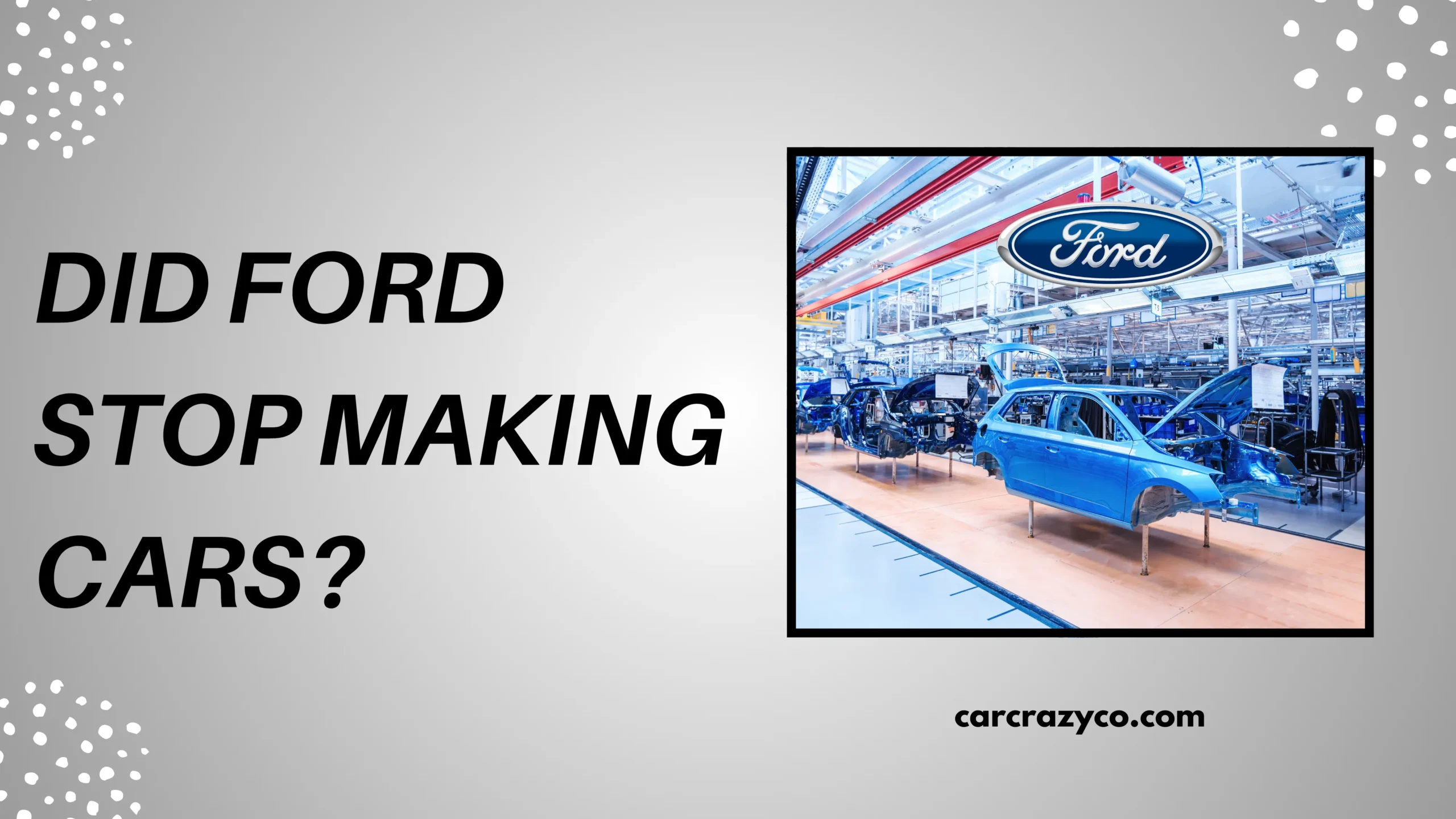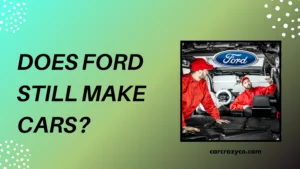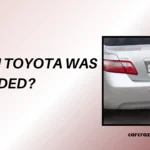The automotive world is constantly changing, and rumors can quickly spread about major companies like Ford. Lately, many people are asking a big question: Did Ford stop making cars?
This topic is important because it affects customers, investors, and car enthusiasts who want to know the future of a company that has shaped the industry for over a century.
Understanding whether Ford has really stopped making cars can help you make better decisions about buying vehicles, planning investments, or simply staying informed about industry trends.
This question also taps into larger changes, like the shift toward electric vehicles and changing consumer preferences.
In this blog, we will dive deep into Ford’s current production status, explore the changes in their car lineup, and clarify what the future might hold. Keep reading to separate facts from rumors and learn what Ford’s real story is.
Contents
- 0.1 1. Ford’s Traditional Car Production Status
- 0.2 2. Why Has Ford Changed Its Car Production?
- 0.3 3. The Rise of Electric Vehicles at Ford
- 0.4 4. What Has Ford Stopped Making?
- 0.5 5. What Does This Mean for Ford Customers?
- 1 Conclusion
- 2 FAQs
- 3 1. Did Ford completely stop making cars?
- 4 2. Why did Ford stop producing some sedans?
- 5 3. Does Ford make electric cars?
- 6 4. Are there still Ford sedans available?
- 7 5. How does Ford’s shift affect buyers?
- 8 6. Is Ford investing in future car technologies?
1. Ford’s Traditional Car Production Status
Ford has been a giant in car manufacturing for over 100 years, producing a wide range of vehicles including sedans, trucks, and SUVs. However, in recent years, the company has shifted its focus, reducing the number of traditional sedans and cars in favor of trucks and SUVs.
Although some popular car models have been discontinued, Ford has not stopped making cars completely. Instead, their lineup is evolving to match market demands and trends, especially in North America.
This shift reflects Ford’s strategic move to concentrate on vehicles with higher demand and profit margins, such as the Ford Mustang Mach-E and electric vehicles.
2. Why Has Ford Changed Its Car Production?
Ford’s decision to reduce traditional car production is driven by changing consumer preferences. More people today prefer trucks, SUVs, and electric vehicles over smaller sedans.
Additionally, stricter emission regulations and the push toward sustainability have encouraged Ford to innovate and invest heavily in electric vehicle (EV) technology.
By focusing on electric cars and SUVs, Ford aims to stay competitive in a market moving toward cleaner, smarter transportation.
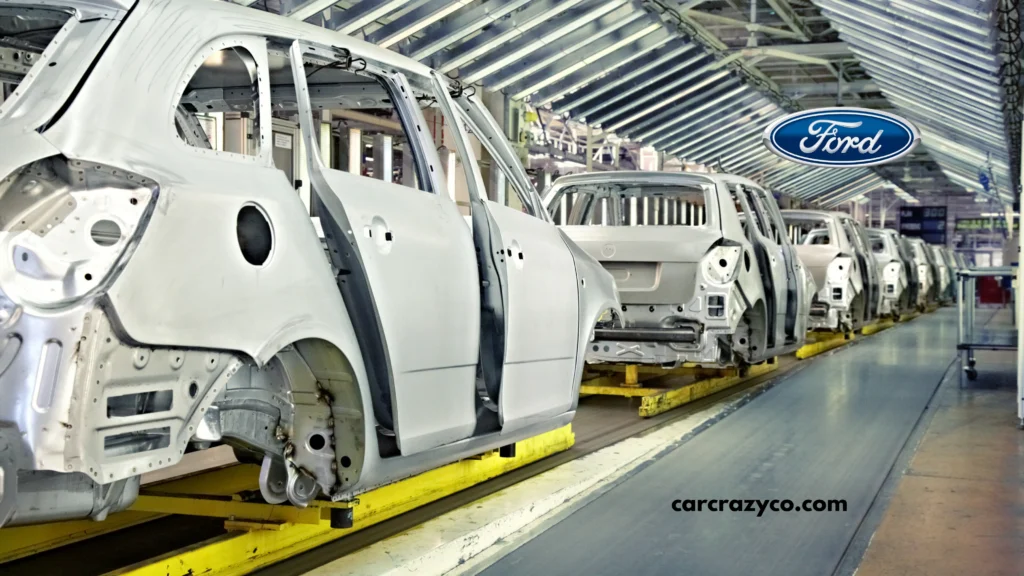
3. The Rise of Electric Vehicles at Ford
One of the biggest reasons for changes in Ford’s car production is the rise of electric vehicles. Models like the Ford Mustang Mach-E and the upcoming Ford F-150 Lightning show Ford’s commitment to EVs.
These electric models are technically “cars,” even if they don’t look like traditional sedans, signaling that Ford is not abandoning cars but rather redefining what cars mean for today’s market.
Ford is investing billions in EV development to meet future demands and government mandates around the world.
4. What Has Ford Stopped Making?
While Ford continues to make cars, it has discontinued some traditional sedans like the Ford Fusion and Taurus in recent years.
This move was partly due to declining sales and a strategic choice to focus on more popular vehicle types like SUVs and trucks.
Ford’s shift reflects a broader industry trend, with many automakers reducing sedan production in favor of larger, more versatile vehicles.
5. What Does This Mean for Ford Customers?
Ford customers who prefer sedans may find fewer options, but the brand offers exciting new choices in electric cars and SUVs.
Those interested in electric vehicles can explore Ford’s growing lineup of EV models designed to combine performance with sustainability.
Ford’s focus on innovation and technology means future buyers will see cutting-edge features and new driving experiences, even if the classic sedan lineup is smaller.
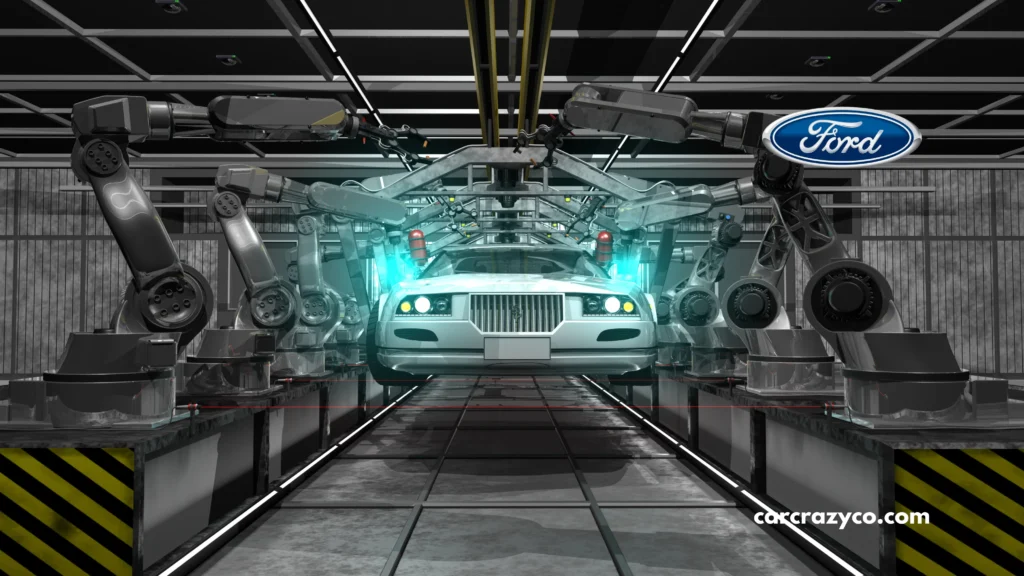
Conclusion
Ford has not stopped making cars but has strategically changed what kinds of cars it produces. The company is focusing more on SUVs, trucks, and electric vehicles to adapt to market shifts and environmental demands.
While some traditional sedans are no longer available, Ford continues to innovate and redefine its vehicle lineup to stay relevant in a rapidly evolving automotive world. For consumers and enthusiasts, this means exciting new options and a future that blends tradition with innovation.
FAQs
1. Did Ford completely stop making cars?
No, Ford has not stopped making cars but has reduced traditional sedans to focus on SUVs, trucks, and electric vehicles.
2. Why did Ford stop producing some sedans?
Ford discontinued some sedans due to declining sales and a strategic focus on more popular and profitable vehicle types.
3. Does Ford make electric cars?
Yes, Ford produces electric vehicles like the Mustang Mach-E and F-150 Lightning, emphasizing the future of automotive technology.
4. Are there still Ford sedans available?
Ford offers fewer sedans today, but some models may still be available depending on your location and dealership inventory.
5. How does Ford’s shift affect buyers?
Buyers have more choices in SUVs and electric vehicles, but fewer traditional sedan options.
6. Is Ford investing in future car technologies?
Absolutely. Ford is heavily investing in electric and autonomous vehicle technology to lead in the future automotive market.

